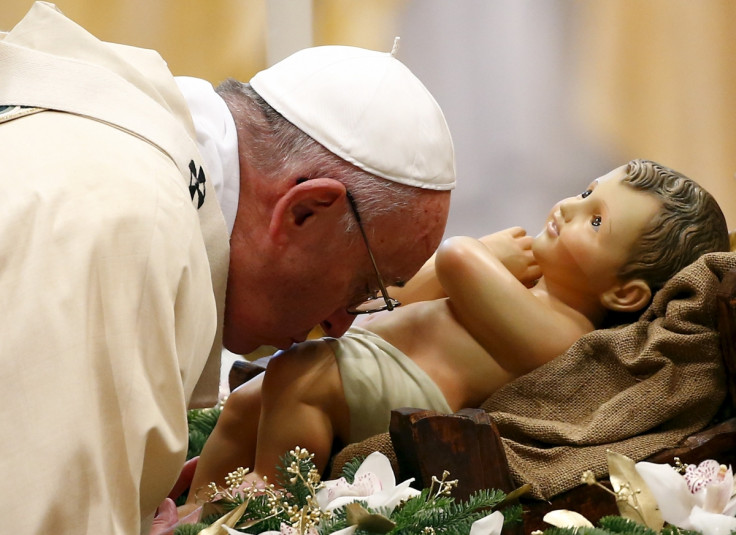Pope Francis: First book from pontiff says Catholic Church 'does not exist to condemn people'

Extracts from the Pope's first book, published today (10 January 2016) in The Sunday Telegraph, show the pontiff extolling the virtues of mercy and telling Roman Catholics that the church "does not exist to condemn people". The book also sets out his thoughts on homosexuality and divorce.
The book, set out as a long interview with Italian journalist Andrea Tornielli, is titled The Name of God is Mercy and is to be published later this week. The book's theme of mercy comes weeks after Pope Francis inaugurated this year as the year of mercy. In the book, he says that the Church's image as a stern moral judge should be shaken off and that the core purpose is to spread the "infinite mercy of God".
"The Church does not exist to condemn people but to bring about an encounter with the visceral love of God's mercy," he says.
The book's themes suggest that the expected papal teaching on the issue of whether divorcees who remarry against the teachings of the Church can be received into communion will not be a judgemental take.
He also challenges priests and bishops to go out into the world more to spread the message of God's mercy: "I like to use the image of a field hospital to describe this 'Church that goes forth'. It exists where there is combat. It is not a solid structure with all the equipment where people go to receive treatment for both small and large infirmities. It is a mobile structure that offers first aid and immediate care, so that its soldiers do not die. It is a place for urgent care, not a place to see a specialist."
The Pope also goes further than before in expressing his opinions on homosexuality in the book, saying that gay people should not be defined by their sexuality and should be welcomed into the Church. In 2013, when asked about the Catholic Church's tradition of condemning homosexuality, he replied "Who am I to judge?"
The pontiff also talks about his attachment to prisoners, saying that under different circumstances he could have been in prison: "I have always been very attached to them, precisely because of my awareness of being a sinner. Every time I go through the gates into a prison to celebrate Mass or for a visit, I always think: why them and not me? I should be here. I deserve to be here."
Read the full extract here.
© Copyright IBTimes 2025. All rights reserved.






















